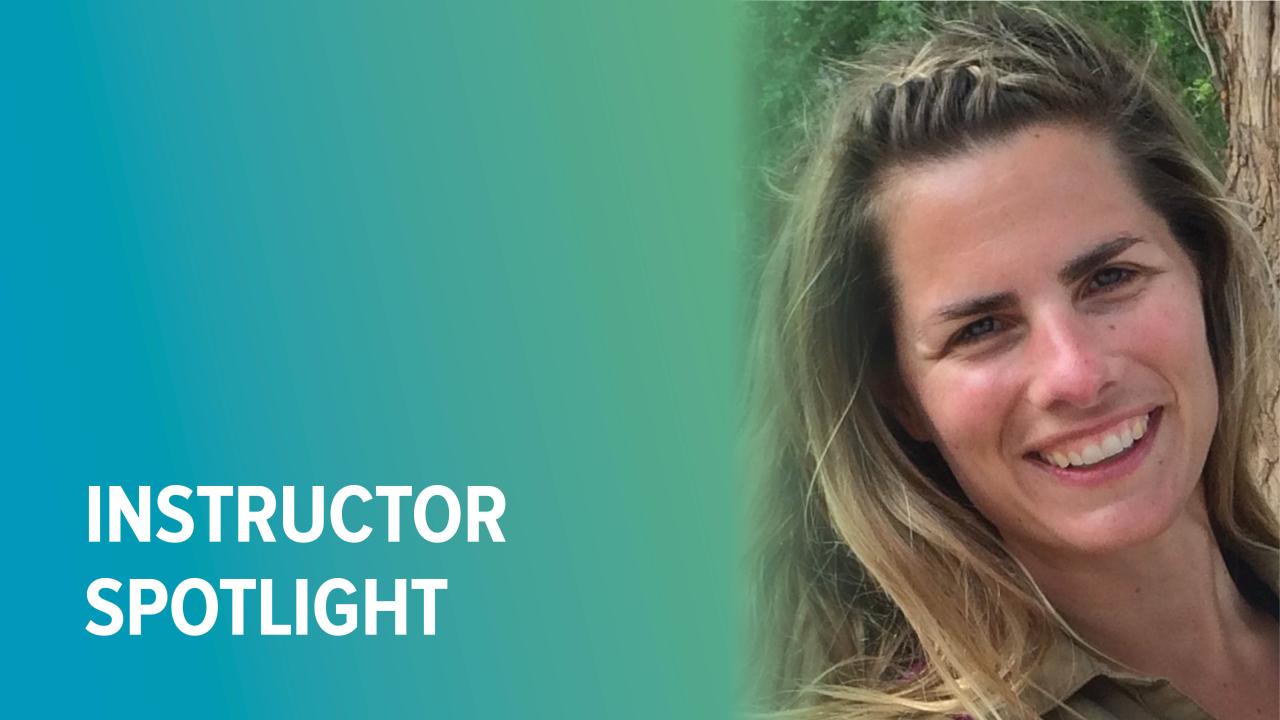
Instructor Spotlight: Jennifer Rohrs
Jennifer Rohrs has a background in plant ecology, with a focus on the physiological response of plants under a changing climate. During her research, she used some of the same physiological tools used in the winegrowing industry and began applying her work to understanding the grapevine physiology, crop water use and irrigation management. In 2013, she landed in Napa Valley and has held positions in viticulture with wineries, vineyard management companies and consulting firms ever since. Now, Rohrs is an independent viticulture consultant and contractor at Vine Ecology in Napa County with a research associate appointment at the University of California Cooperative Extension. She is also the instructor of Viticulture for Winemakers in UC Davis Continuing and Professional Education’s online Winemaking Certificate Program.
What do you love most about viticulture?
There are a lot of ecological aspects to grape growing. Winegrapes are a perennial system that will hopefully be productive for more than 20 years. What I enjoy, is that all of the interactions within a vineyard sum up to an agro-ecological system. There are the elements of the plant material, the climate and the site variables. This is the background for many interactions that can affect the quality of the crop—of course, humans and our farming practices are one of the most powerful drivers in this system. The vineyard is an integrated ecosystem, and if appropriately managed, this system can find an optimal balance that sets the stage for wine grape production.
Why is an education in viticulture important for winemakers?
Wine growing crosses many different disciplines: plant physiology, plant pathology, soil science and entomology. It’s important to have some basic training and academic exposure to these areas, so when a real-world issue arises, you have a background to build on. When growing a crop, it’s impossible to learn everything that you need to know in a classroom. Ultimately, the key is in the combination of academic exposure and hands-on vineyard and winemaking experience.
What are the necessary skills for someone considering a career (or career advancement) in viticulture and winemaking?
Academic training in viticulture or winemaking is just the tip of the iceberg. Since this industry is based on agriculture, each vintage will bring a different challenge. There are changes in weather patterns and climate that are somewhat predictable over time, but each season will present challenges that may or may not be anticipated. So, this isn’t a steady, predictable work environment! I think you have to be willing to be inventive, adapt to new challenges, rely on research and your (or others’) experience to come up with solutions.
Why do you teach?
In Europe, the winegrowers are often the winemakers. However, winemaking and viticulture practices are unfortunately very separate in the United States. As an instructor in the UC Davis Winemaking Certificate Program, I'm eager to bridge this gap and teach a viticulture class to prospective winemakers. I aim to encourage more collaboration and communication between winemakers and viticulturists.
How would a student describe your teaching style?
I value demonstrating real-world examples that anchor and drive the course material. I want to take the students into the vineyard with me, show them around and introduce them to a case study based on that week's lesson material.
I also recognize the structural barriers our education system has placed on people with diverse identities, especially in the field of viticulture and winemaking. I hope to create an inclusive classroom that supports students that have been traditionally excluded in American agriculture and with historically racist land grant practices.
Interested in the Winemaking Certificate Program?
If you’re considering a career in winemaking and want to learn more about how our Winemaking Certificate Program can help, contact our enrollment coach, Kristy Craig. She can speak with you about the program, answer your questions and ensure it’s the right fit for you. Schedule a one-on-one appointment today!
What do you want students to take away from your course?
I want students to recognize that many steps go into delivering high-quality grapes to the winery. Wine grapes have a unique physiology, and the vine is one component of a complex agro-ecosystem. I want to anchor students in the biology of the vine itself and introduce them to all the interactions that happen in the vineyard (plant-soil, plant-insect, plant-pathogen).
For people new to the industry who are unsure of which career path to pursue—winemaking or viticulture—this course will expose them to different career paths in viticulture (i.e., viticulture technician, vineyard scout, viticulturist, vineyard manager, grower relations) and how those roles intersect with winemaking.
What’s trending in the field of viticulture that students should be aware of?
Red Blotch Virus! This is a phloem-limited virus that affects the way sugars are translocated in the vine, and this virus negatively affects the ability of the vine to adequately ripen the crop load. Viticulturists have been working hard to limit the amount of virus in vineyards through visual identification, virus testing and removing affected vines. However, we have been unable to effectively manage this virus. I am working with the UC Cooperative Extension on several projects that will improve the detection of Red Blotch virus and help us better understand how to manage it. One project we are working on is a mobile phone app that will be able to identify Red Blotch symptoms from a photo.
